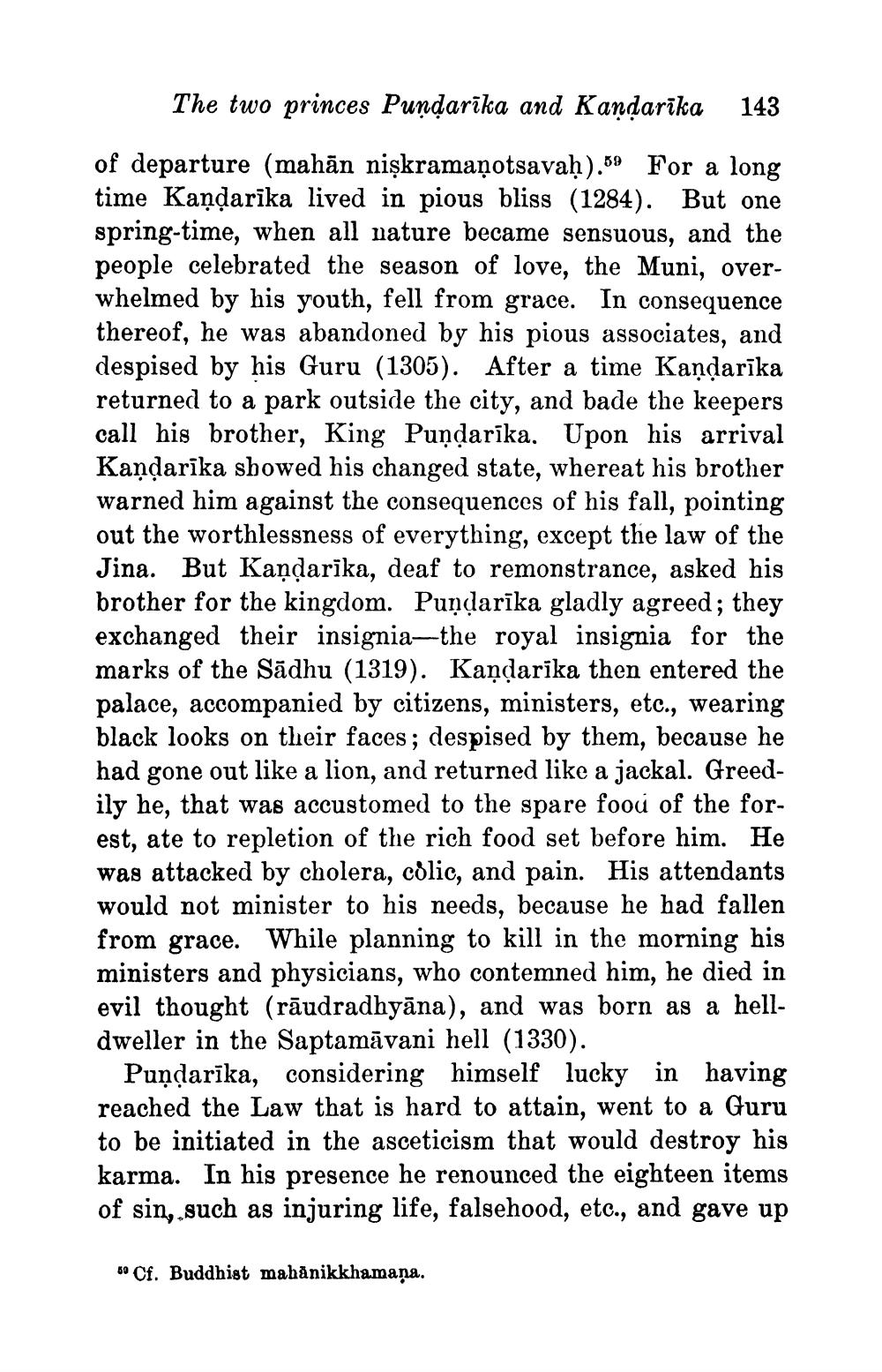________________
The two princes Puṇḍarika and Kandarika 143
of departure (mahan nişkramaņotsavaḥ).59 For a long time Kaṇḍarika lived in pious bliss (1284). But one spring-time, when all nature became sensuous, and the people celebrated the season of love, the Muni, overwhelmed by his youth, fell from grace. In consequence thereof, he was abandoned by his pious associates, and despised by his Guru (1305). After a time Kaṇḍarika returned to a park outside the city, and bade the keepers call his brother, King Pundarika. Upon his arrival Kandarika showed his changed state, whereat his brother warned him against the consequences of his fall, pointing out the worthlessness of everything, except the law of the Jina. But Kaṇḍarika, deaf to remonstrance, asked his brother for the kingdom. Pundarika gladly agreed; they exchanged their insignia-the royal insignia for the marks of the Sadhu (1319). Kaṇḍarika then entered the palace, accompanied by citizens, ministers, etc., wearing black looks on their faces; despised by them, because he had gone out like a lion, and returned like a jackal. Greedily he, that was accustomed to the spare food of the forest, ate to repletion of the rich food set before him. He was attacked by cholera, còlic, and pain. His attendants would not minister to his needs, because he had fallen from grace. While planning to kill in the morning his ministers and physicians, who contemned him, he died in evil thought (raudradhyāna), and was born as a helldweller in the Saptamavani hell (1330).
Pundarika, considering himself lucky in having reached the Law that is hard to attain, went to a Guru to be initiated in the asceticism that would destroy his karma. In his presence he renounced the eighteen items of sin, such as injuring life, falsehood, etc., and gave up
50 Cf. Buddhist mahānikkhamana.




